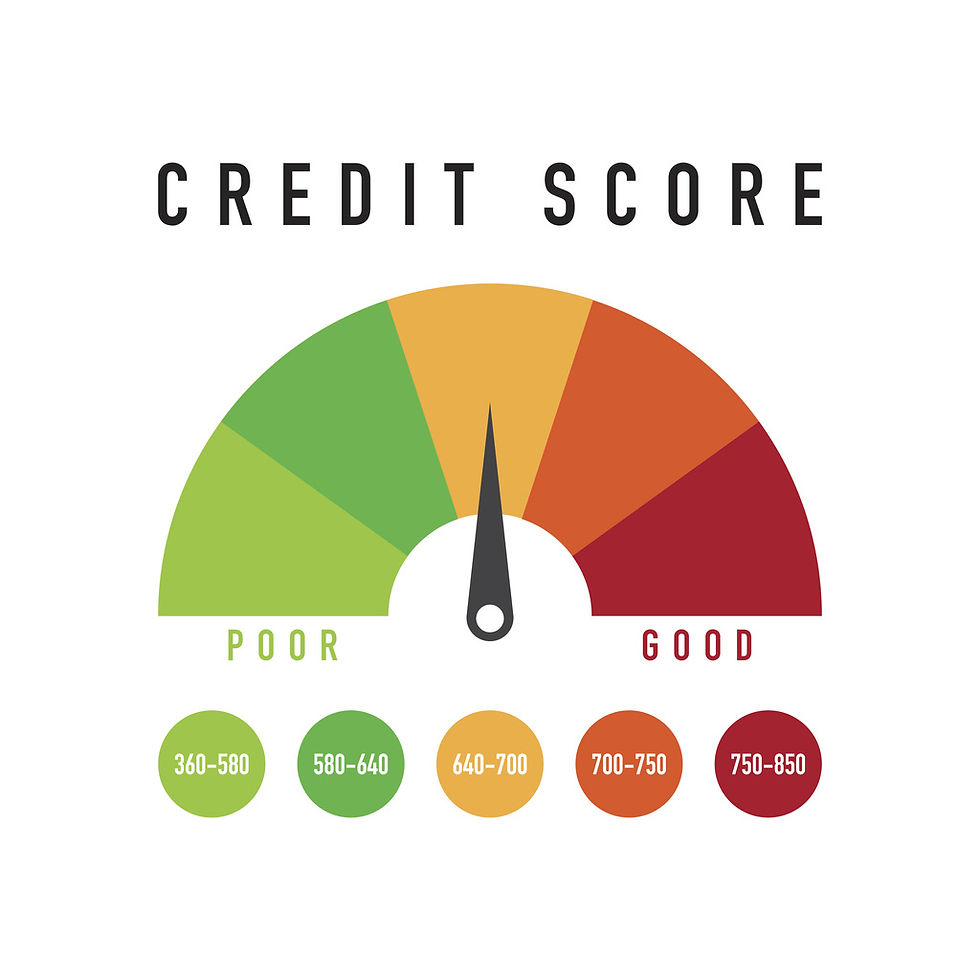Decentralized Credit Scores: How Web3 Is Building a Trust Layer Without Banks
- Bitcoinsguide.org

- Sep 9
- 3 min read
Banks have long controlled credit systems—but Web3 is rewriting the rules.
Discover how decentralized credit scores are transforming access to finance.
Why Decentralized Credit Matters in 2025
Access to credit is one of the foundations of wealth generation.
But traditional credit scores (like FICO) are opaque, exclusionary, and controlled by centralized institutions.
Billions globally remain “credit invisible,” lacking access to loans simply because they don’t have conventional credit histories.
Web3 is changing that.
With decentralized finance (DeFi) maturing, decentralized credit scores are emerging as a crucial primitive for the next wave of blockchain adoption.
They offer a transparent, global, and permissionless way to assess creditworthiness—without needing a bank or credit bureau.

🏦 How Traditional Credit Systems Work
In traditional finance:
Banks and lenders report your payment history to centralized credit bureaus.
These agencies build profiles (e.g., FICO, Experian).
Scores are based on income, debt, payment history, etc.
Scores determine whether you get loans, mortgages, or credit cards.
Problems with this system:
Exclusion of unbanked populations (2 billion people globally)
Opaque algorithms and scoring models
Privacy concerns (data breaches, surveillance capitalism)
🔗 Web3’s Solution: Decentralized Credit Protocols
In decentralized finance, you don’t need permission to borrow or lend—but risk assessment is still critical.
That’s where decentralized credit scores come in, using on-chain and off-chain data to create transparent credit profiles.
Key Mechanisms:
On-Chain Behavior: Wallet history, repayment of previous loans, DAO participation, DeFi yield farming history.
Off-Chain Data Oracles: Linking real-world payment data via oracles like Chainlink.
Reputation Systems: Points for participation in DAOs, lending, protocol governance.
Zero-Knowledge Proofs (ZK): Verifiable but private credit attestations.
🛠️ Major Projects Building Decentralized Credit Scores
Project | Focus |
Arcx | On-chain credit scores & DeFi passports |
Spectral | Machine learning-generated “MACRO scores” from wallet activity |
Goldfinch | Credit for real-world businesses in emerging markets |
Creditcoin | Linking borrowers and lenders for transparent credit histories |
Reputation DAO | DAO-based scoring with verifiable reputation layers |
📊 Why Decentralized Credit Scores Matter for Crypto Adoption
Access for the Unbanked: Anyone with an internet connection and crypto wallet can build a credit history.
Transparent Lending Markets: Lenders can assess risk with open data, not hidden algorithms.
Global Reach: Creditworthiness becomes borderless, empowering users in underserved economies.
Composability: Credit scores can be integrated into various protocols—yield farms, DAOs, NFT platforms.
⚠️ Challenges Ahead
Data Privacy: Striking a balance between transparency and protecting sensitive user data.
Identity Verification: Avoiding Sybil attacks (multiple fake identities farming credit).
Adoption Curve: Requires user education and integration across multiple protocols.
Legal Recognition: Bridging on-chain scores with off-chain legal systems.
🔮 What’s Next for Decentralized Credit in 2025–2026?
Zero-Knowledge Credit: ZK-based attestations will solve privacy concerns while maintaining verifiability.
Cross-Chain Creditworthiness: Scores portable across chains, from Ethereum to Solana to Layer 2s.
Integration with Real-World Lending: More DeFi platforms will fund microloans, mortgages, and real-world assets.
AI Risk Models: Machine learning integrated with DeFi to assess and price credit risk dynamically.

Decentralised Credit Scores
🏁 Conclusion
Decentralized credit scores could be one of the most transformative applications of Web3, offering a transparent, open, and global financial reputation system that breaks free from the legacy banking elite.
They don’t just open up crypto—they open up finance itself to billions more people.
Subscribe to bitcoinsguide.org for deep dives into emerging DeFi primitives, airdrop alerts, and cutting-edge crypto investment strategies.



Comments